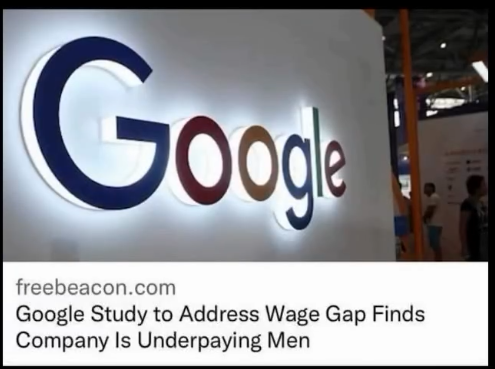Google’s Gender Pay Controversy: When the Data Bites Back
In a surprising twist of events, Google found itself in hot water over gender pay issues—but not in the way you'd expect. A group of women sued the tech giant for underpaying them. In response, Google launched a study to investigate the claims. What the study revealed shocked everyone: it wasn’t women being underpaid—it was men! The research indicated this may have been due to intentional efforts to balance previous pay gaps. This ironic turn sparked conversations worldwide, challenging common assumptions about wage disparity. While Google's original intent was to promote fairness, it inadvertently opened a new debate about equality, reverse discrimination, and corporate responsibility. Sometimes, trying to fix a problem might just flip the script entirely.
BILLIONAIRENEWS
Thrivevision
4/13/20251 min read


In a world increasingly focused on workplace equality, Google found itself in the middle of an ironic controversy. A group of female employees sued the tech giant, accusing it of underpaying women. Public pressure mounted, and the company committed to conduct an internal wage audit — a move that seemed like the right thing to do.
But the results shocked everyone.
Instead of confirming a wage gap disadvantaging women, the study revealed that Google was underpaying men. Yes, in attempting to fix one inequality, the company may have inadvertently created another. The audit suggested that pay adjustments meant to promote gender parity had overshot the mark, resulting in unintentional bias against male employees. The report even noted that this could be the outcome of intentional efforts gone too far.
This situation opens up a Pandora’s box of ethical and managerial questions. How do organizations ensure fairness without tipping the scales in the opposite direction? Is reverse discrimination a real and growing problem? And most importantly — can equality ever be achieved through blanket policies?
While many applauded Google’s transparency, critics argued that this kind of miscalculation could damage morale, fuel gender tensions, and create new divides. The lesson? True equality requires nuanced strategies, constant evaluation, and data-driven decisions, not assumptions or rushed fixes.
In a world striving for fairness, this incident serves as a powerful reminder that the road to equity is anything but straightforward.
Inspiration
Explore success stories and motivational journeys today.
Growth
Vision
© 2025. All rights reserved.
